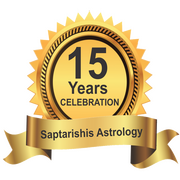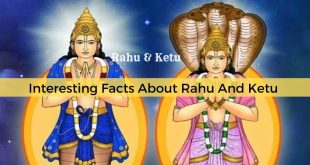Related Articles
Translated and Rewritten into English by the Author
Reviewed & Proof Read for SA by: Pamela Jablonski U.S.A.
(Answer to a question originally posted on the Usenet newsgroup of astrology tin.it.hobby.astrologia)
First published as an article in Ciro Discepolo’s magazine Ricerca ’90 issue 39
“Dear XY;
In the newsgroup you have expressed your moody curiosity of knowing what I think of such a difficult and controversial subject as Science vs. Astrology, if you really want to know, I am here to answer. I’ll try to be concise and clear.
To tell you the truth, I’d formulate the defence of astrology as a genuine attack on modern science, because science usually boasts of an authority that is inadequate to the weakness of its representatives, to the real extent of its practical
results, and to the truth of its hypotheses. I’d begin by explaining that the attempts to answer the question, “What is science”? or at least the attempts to understand how science works and what science is based on, are almost all ‘naïve’ or outdated.
The Galilean method, so vehemently invoked as the essential foundation of sound scientific experimentation, is an essentially deductive-inductive procedure. Starting from the straightforward observation of reality, the Galilean scientists make up rules by deduction, and later on they verify those rules by induction through a successive phase of observation / experimentation. However, this method may have its own deficiencies at the logic stage, because it is based fundamentally on the classic syllogism, although his real weakness lies behind other limitations.
Alan Chalmers (author of the book that I have advised you to read in the newsgroup, entitled What is This Thing called Science?) defines the enthusiastic Galilean scientists ‘naïve inductivist’. He says so, I haven’t invented this expression. The inductivists claim that science is based on observation. Now, without saying names, I remember that someone wrote recently in the newsgroup that astrology also is based on observation. Well, I disagree with this point of view because I cannot imagine the old Chaldean shepherds applying a Galilean method and performing a scrupulous statistical research concerning the physical, psychological and somatic characteristics of people born under a certain sign of the zodiac – this would have certainly been an anachronistic nonsense.
The inductivists point out: to be more precise, science is based on the observation of phenomena that demonstrate the truth of an initial theory. For example, say that there’s a theory claiming that the sun always rises in the East. Now, if you really want to verify that the sun rises in the East, you should go out with your compass at every dawn and wait until the morning comes… But at this point Chalmers starts a long dissertation on the validity or the falsity of the observations, with digressions on the optical and auditory illusions, underlining that our brain, willingly or unwillingly, interprets the physical data that reach your eyes or your ears. Given these caveats I’m just considering that the inductivists are wrong when they claim that the observation itself should not be influenced by any theory or hypothesis whatsoever. In fact what happens in reality is exactly the opposite. If you really watched the sunrise any given day, you should conclude that in fact the sun does not rise always exactly in the East. Unless you observed the sunrise on an equinox (occurring twice a year) you should in fact conclude that the sun never rises in the East. But if you modify the initial hypothesis by adding a statement claiming that “during the equinoxes, the sun really rises from the East” you would add a theoretical premise to your observation! Thus you would cease to be an inductive, because you would admit to know that there certain special days called equinoxes, and that you know what they are and what consequences they entail – and this, without having ever experienced or observed them directly!
Moreover, nobody can assure you that the sun will always rise from the East, throughout all the equinoxes of all the years forever more. The only way to be sure about it is to repeat this observation, say the inductivists. The question then is, “How many times shall I repeat the observation”? Two hundreds time? One thousand times? Perhaps a million times? In other words, how many black crows should I watch before concluding that all crows are black? The answer, Bob Dylan would sing, is blowing in the wind…
Given these considerations, the inductivists correct their aim and acknowledge that the observation does not provide certainties but simply offers a fairly good ‘likelihood’ of certainty. This way, their own logical castle simply collapses. In fact replacing truth and certainties with simple probabilities means lifting the foundations from the castle of authority that science has been building around itself. It means admitting that, after all, science is not that great body of knowledge that some people want us to believe.
Another approach rises from the attempt to overcome the logical limits of inductivism: it is called falsificationism. The falsificationist says if you can not prove with certainty the validity of a hypothesis, at least you can prove with certainty the possible falsehood of it, provided that the hypothesis is expressed falsely, but clearly and immutably. Well, if I say that “almost all crows are black” the hypothesis is valid just as if I see 10 or 1000 black ravens, and even if you see two or three white crows that still is an equally valid hypothesis. Most of the arguments or statements in Astrology are not falsifiable in this sense, as if in a manual we read: “the sun in the 9th house often shows the native will eventually migrate or make long trips” even though we find a person having the sun at 9 ° has not migrated and may not have done any travelling, yet it has proved the falsity of the offending phrase. But if you think about it, not many scientific ideas in vogue today are counterfeit.
Another blow to the two mentioned approaches is afforded the same recent history of science. Many discoveries have been made by chance, or by mistake. And how many have sprung from dreams or intuitions, rather than in cold laboratory experimentation? Science later led extremely creative people, who swam upstream, carried away by their own convictions, despite the many negative results. On the contrary the Galilean method, which assumes that if the observation does not support the hypothesis, then we must abandon it.
Other approaches, like that of a man named Thomas Kuhn, who speaks of ‘paradigms’ or structures of thought that have their relative validity for sometimes a very long season. But then they begin to give way under the arrival of thinkers younger and more agile and innovative. One example of scientific paradigms is the vision of the universe as geocentric and heliocentric and is replaced by Newtonian physics, and then overcome and replaced by the relativism of Einstein. Another example would be the fixity of species, replaced by Darwinian evolution.
Another approach, which is a little mine, sees science as a sort of modern religion, which happens exactly the opposite of those who taught us; that is, where the scientist rather than a person, fundamentally open to innovations reaches the point of evaluating hypotheses contrary to their own. They are then ‘happy’ to adhere to new ideas and more valid theories than their own. But then they may actually belong to a breed willing to do anything to maintain their own privileges. The fact is that modern science has invented the congresses, relations, publications, and then denigrates anyone and anything that does not belong to this ‘club’ as unscientific. That’s what happened with the innovative Italian Dr. Di Bella whose anti-tumor therapy was criticized mainly for not having published his findings. The same criticism applies in the astrological Forum. There are astrologers like me who have not been published in any Bulletins of Science and therefore have their ideas invalidated by the scientific community.
If you want to be good with scientists, admit that some people can observe and experience in good faith. But then some who practice this good faith can also be lead to use an ‘intellectual filter’ that then may lead them to discard some observations and theories that are not in favour with the current popular prevailing theories.
Michael Cremo, author of an attack on Darwinian evolution, after studying fossils in museums worldwide, found that his work was censored because it didn’t adhere to the dominant evolutionary theory.
I suspect and fear that astrology also follows this trend because even before someone asks who you are and what you think, they ask what you have published. So the idea of Grazia Bordonia to give a voice to professional astrologers not expressly organized I find very admirable. Bordoni initiated the first ‘Day of Astrology’ forum held in Milan in April 1999, NdA.
And although I can be lazy, I will try to post something in the future. This time you provoked me, asked me what I thought, and now I will have written. In my case the two things coincide.
LUCIANO DRUSETTA
Learn Astrology: Join Our Upcoming Astrology Classes — Click Here
Learn Astrology: Join Our Recorded Astrology Classes — Click Here
 Saptarishis Astrology Magazine Into Creating Astrologers
Saptarishis Astrology Magazine Into Creating Astrologers






